Table of Contents
ToggleCroatia… a place that captured my heart from the very first moment I stepped foot on its cobblestone streets. It has it all! Charming old towns, turquoise waters, and a sprinkle of that undeniable Mediterranean magic. But what truly sets Croatia apart for me, is its extraordinary collection of UNESCO World Heritage Sites. These are more than just postcards, they’re cultural and natural gems that tell the story of Croatia’s rich history and breathtaking beauty. Ready to embark on an adventure? Let me take you there!
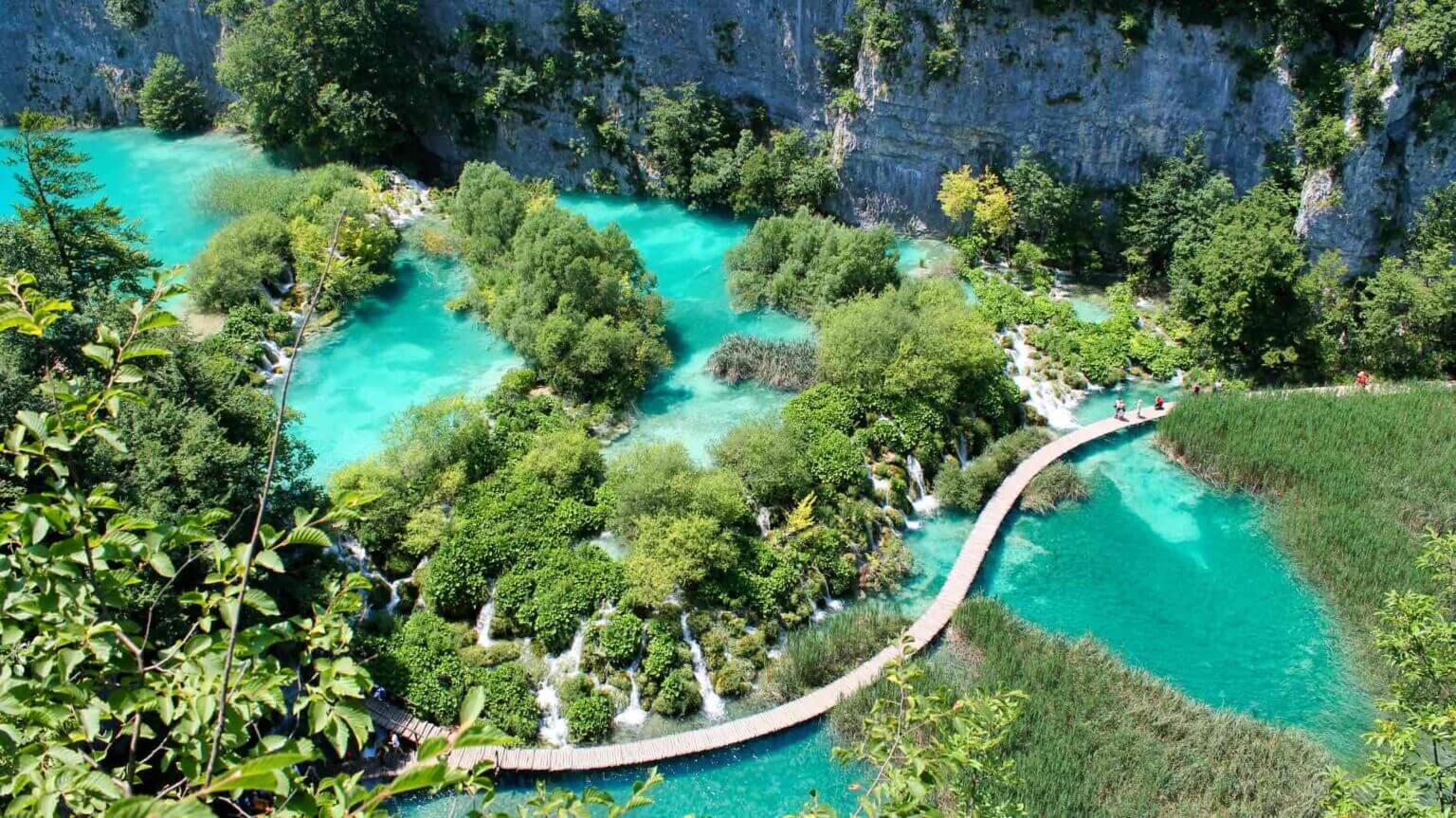
Key Takeaways
- Croatia’s UNESCO Sites offer extraordinary and diverse experiences, blending history, culture, and natural beauty.
- The sites showcase the enduring influence of various eras, from Roman times through the Venetian Republic and beyond.
- Croatia boasts both well-known UNESCO sites and lesser-known gems worth uncovering.
- Exploring the UNESCO Sites often leads to discovering the surrounding towns and landscapes, enriching the experience.
- Croatia’s UNESCO Sites inspire awe, ignite curiosity, and foster a deep appreciation for heritage preservation.
Croatia's Crown Jewel: The Old City of Dubrovnik
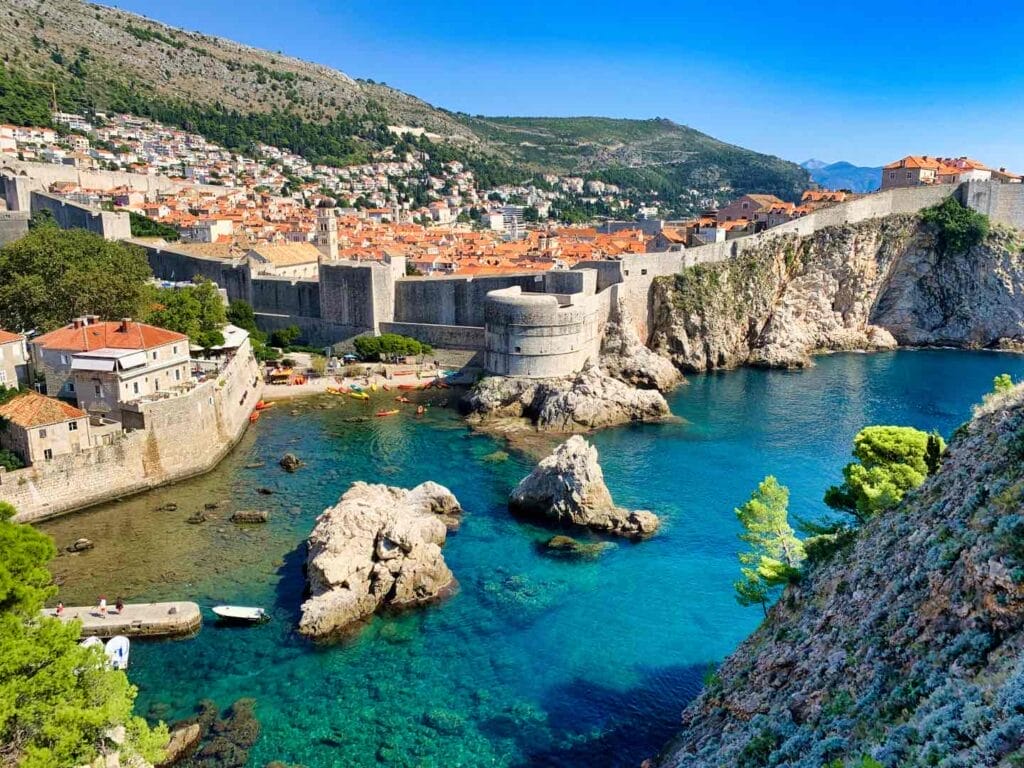
Dubrovnik is no stranger to the spotlight, and trust me, it deserves every bit of its fame. As I approached it, you could see the fortified walls rising from the Adriatic were like something out of a fantasy.
A Walk Through History: Exploring Dubrovnik’s Fortifications
Let’s start with those iconic walls! They tell tales of battles and resilience, and walking along them offers stunning views of the city and the sea. I highly recommend it, give yourself plenty of time, bring water, and prepare to be amazed.
Stepping Back in Time: Unveiling Dubrovnik’s Architectural Gems
The Old City within the walls is a gem itself. It’s a maze of Renaissance and Baroque buildings, with the Stradun (the main street) as its dazzling spine. Seek out the Franciscan Monastery, Onofrio’s Fountain, and Rector’s Palace, treasures from different eras.
Beyond the Walls: Dubrovnik’s Enchanting Harbour and Beaches
After exploring the history, it’s time for some relaxation. Dubrovnik’s harbour is full of charming cafes and restaurants, while beaches like Banje offer clear waters and fantastic views. For something truly special, hop on a boat to Lokrum Island for a botanical garden and even a dip in a mini “Dead Sea.”
Related article: 3 Days in Dubrovnik: Sun, Walls, and Game of Thrones
A Roman Emperor's Legacy: The Historical Complex of Split with the Palace of Diocletian
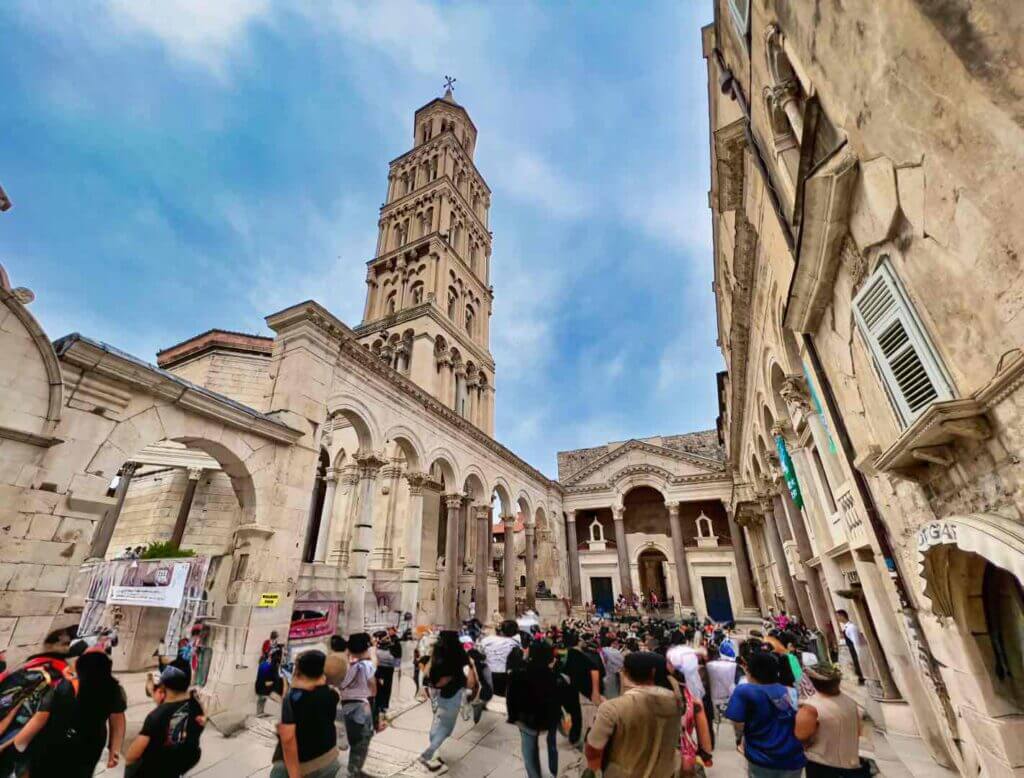
Split is a city with a unique vibe, a fascinating blend of ancient might and modern energy. At its heart lies Diocletian’s Palace, a UNESCO marvel built for a Roman emperor who decided to spend his retirement in style!
Diocletian’s Palace: Unveiling the Grand Design of a Roman Emperor
This isn’t just a palace, it’s a living, breathing part of the city. Stroll past Roman columns and temples, and be sure to explore the vast cellars where they filmed some iconic “Game of Thrones” scenes. Imagine the hustle and bustle of imperial life here centuries ago!
From Ancient Peristyle to Bustling Marketplace: Exploring Split’s Palace Core
The Peristyle, the palace’s central square, is still a gathering place after all these centuries. Cafes line its edges, and you might catch a spontaneous acapella performance, the acoustics are incredible! Don’t miss the Cathedral of St. Domnius for its blend of eras and a climb up the bell tower for sweeping views.
A City Within a City: Split’s Environs Beyond the Palace Walls
The fun doesn’t stop at the palace. Venture down Riva, Split’s seafront promenade, sip coffee like a local, or explore the lively Pazar green market. And if you’re craving a bit of nature, Marjan Hill park offers forest trails and stunning vistas.
Related article: Split Travel Guide
FREE Travel Planner
Nature's Masterpiece: Plitvice Lakes National Park
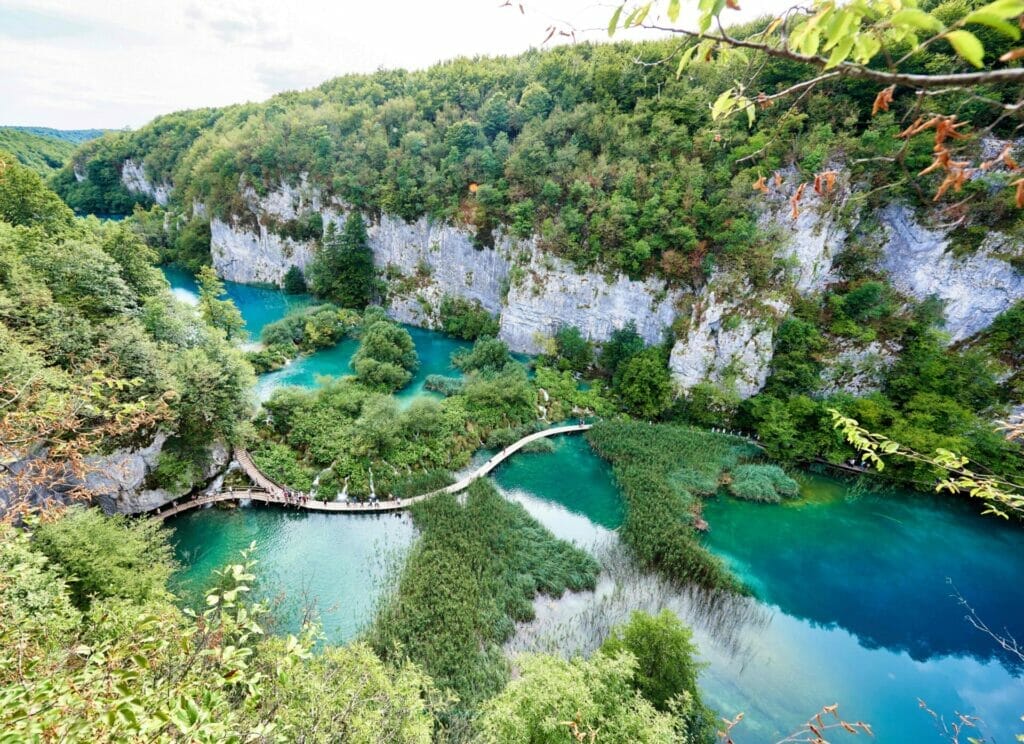
Plitvice Lakes was one of those places that had been on my bucket list forever, and trust me, it surpassed all expectations! It’s a cascade of waterfalls, with turquoise water weaving through lush forests and creating countless stunning lakes.
A Cascading Paradise: Exploring Plitvice Lakes’ Network of Waterfalls
The best way to experience Plitvice is by following its wooden boardwalks that wind between the waterfalls. There are different routes and even ferries across the lakes, so you can choose your level of adventure. Don’t miss Veliki Slap (the tallest waterfall) or the dreamy turquoise pools of the Lower Lakes.
Hiking Trails and Wooden Boardwalks: Unveiling the Diverse Ecosystems of Plitvice
For a change of perspective, take one of the hiking trails into the forests. The park is rich in biodiversity, from vibrant wildflowers to towering trees. The boardwalks give you an up-close view of the waterfalls, but hiking reveals another dimension of Plitvice’s beauty. And I have never seen so many butterflies in my life!
Beyond the Lakes: Exploring the Caves and Forests of Plitvice National Park
Plitvice is more than just its waterfalls. Venture underground to discover a world of stalactites and stalagmites in caves like Šupljara. Or, if you’re feeling adventurous, explore the surrounding forests, home to wildlife like bears, wolves, and birds of prey. There are number of hikes you can take!
5 Reasons Why Croatia Is One Of Europe’s Most Desirable Destinations Right Now
Subscribe to Northern Wanderers
A Byzantine Gem: The Episcopal Complex of the Euphrasian Basilica in Poreč
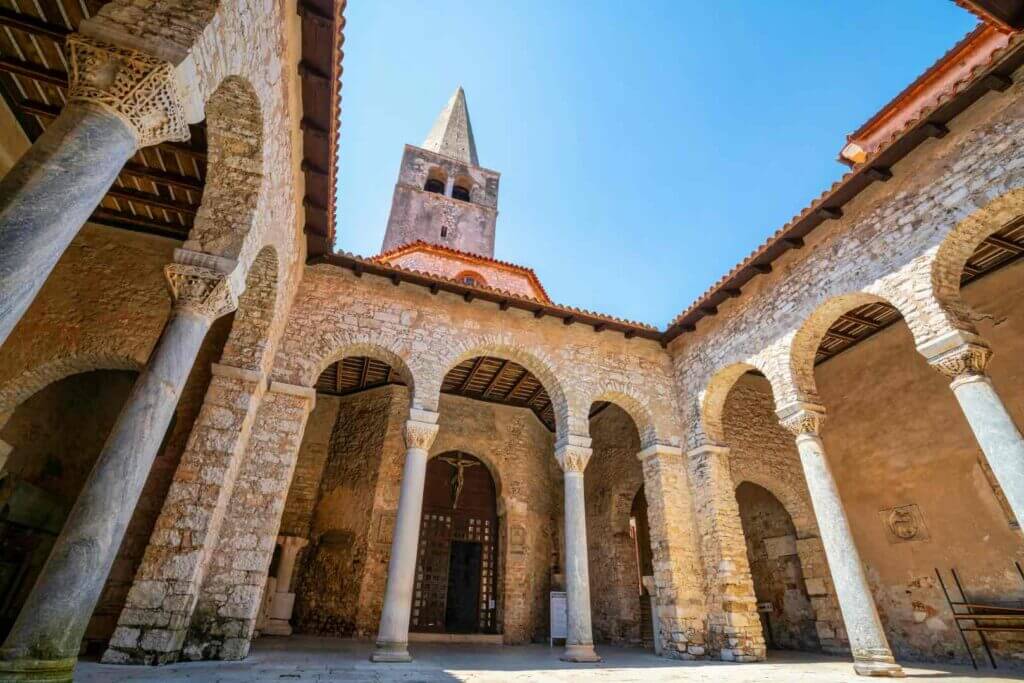
Poreč, on the Istrian coast, is all about old-world charm and a spectacular UNESCO treasure, the Euphrasian Basilica. This 6th-century gem is renowned for its stunning Byzantine mosaics that shimmer with gold and vibrant colours.
Stepping into Splendour: Exploring the Euphrasian Basilica’s Mosaics and Architecture
As you enter the basilica, prepare to be dazzled. The mosaics depict religious figures and scenes, telling stories with exquisite detail. Don’t miss the apse mosaic, showcasing the Virgin Mary and Child, it’s truly awe-inspiring.
A UNESCO Treasure Trove: Unveiling the Episcopal Complex Beyond the Basilica
The complex includes a baptistery, an atrium, and the Bishop’s Palace – all rich in history and architectural detail. Take your time exploring, admiring the intricate stone carvings and remnants of earlier structures interwoven into the design.
Poreč: A Seaside Town Rich in History and Charm
Poreč itself is a delightful blend of Roman ruins, Venetian-era palaces, and a relaxed seaside atmosphere. Wander down Decumanus Street, the town’s main artery, or relax in a cafe overlooking the picturesque harbour.
Related article: Discover Croatia: 10 Hidden Gems Worth Exploring
A Timeless Beauty: The Historic City of Trogir
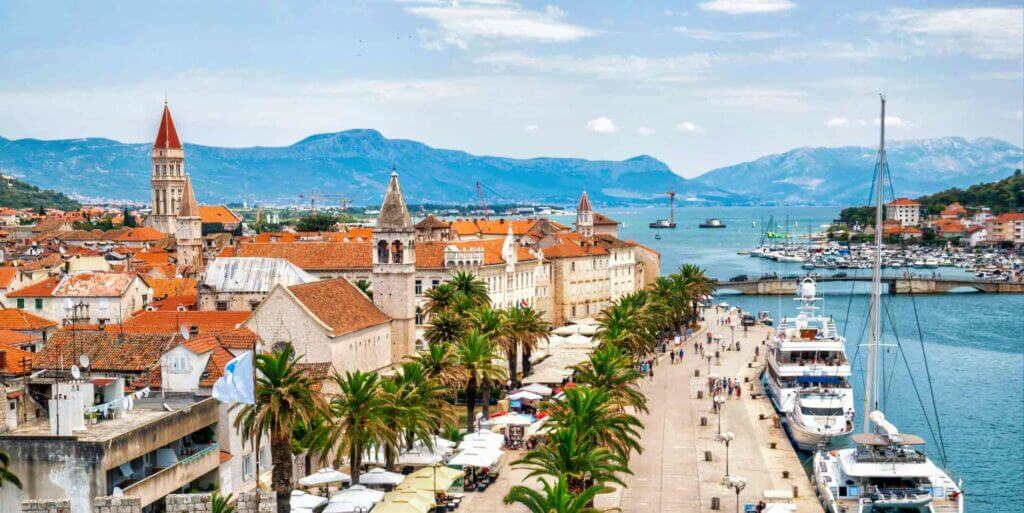
Trogir is a gem tucked away on an island connected to the mainland by a bridge. It’s medieval heart is a maze of cobblestone streets and beautifully preserved architecture that transports you to another era.
A Fortified Town Steeped in History: Exploring Trogir’s Medieval Streets
The best way to experience Trogir is simply to get lost (in a good way!) Wander its narrow alleys, admire the Venetian-era buildings, and discover hidden courtyards brimming with flowers. The fortifications offer lovely views of the town and the sea.
A UNESCO Gemstone: Unveiling Trogir’s Architectural Gems
Trogir is chock-full of architectural delights, including the Cathedral of St. Lawrence with its stunning Romanesque portal, the Cipiko Palace, and the Town Loggia. Dive into their histories and notice the mix of styles from different eras.
Island Hopping Adventures: Exploring the Environs of Trogir
If you’re itching for some island time, Trogir is the perfect base. Hop on ferries to nearby islands like Drvenik or Šolta for beaches, secluded coves, and a taste of authentic Croatian island life.
Related articles: Croatia’s Islands: Top 10 Must-Visit
A Stone Symphony: The Cathedral of St. James in Šibenik
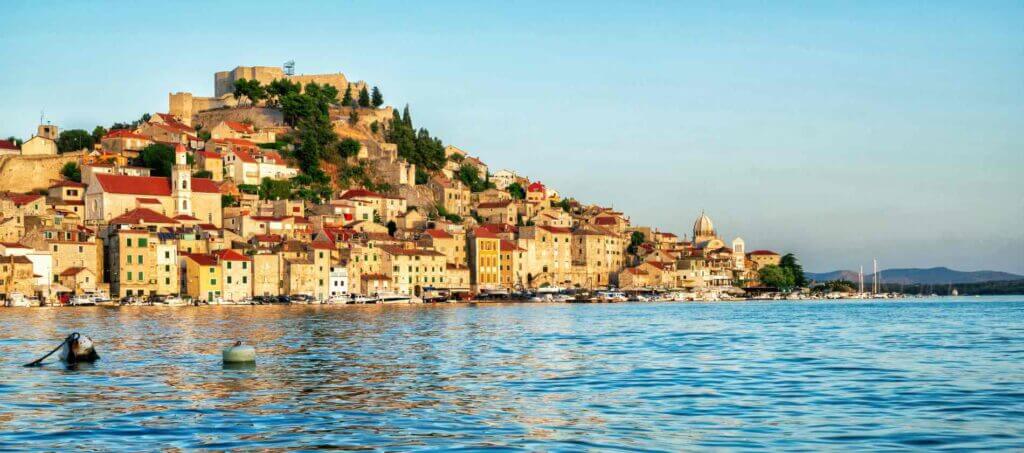
Šibenik, with its dramatic coastal setting, holds a unique UNESCO masterpiece, the Cathedral of St. James. It stands out for its blend of Renaissance and Gothic styles, and the innovative construction techniques used at the time.
Architectural Marvel: Unveiling the Secrets of Šibenik’s Cathedral
Take a moment to admire the facade, especially the frieze surrounding the portal, it features over 70 sculpted heads, each one a unique and expressive portrait! Inside, the play of light and space creates a feeling of grandeur and serenity.
A Town Steeped in History: Exploring Šibenik’s Fortifications and Churches
Venture beyond the cathedral and discover Šibenik’s old town, filled with Venetian architecture and remnants of its fortified past. Seek out St. Michael’s Fortress for stunning city views and a peek into Šibenik’s history as a defensive stronghold.
Beyond Šibenik: Discovering the Natural Beauty of Krka National Park
If you have time, pair your Šibenik visit with a trip to Krka National Park. Its cascading waterfalls and lush greenery offer a contrast to Šibenik’s stone beauty. Don’t miss Skradinski Buk, the largest waterfall system, where you can even swim in its natural pools.
Related article: The Best Time To Visit Croatia
A Cultural Landscape: The Stari Grad Plain on the Island of Hvar
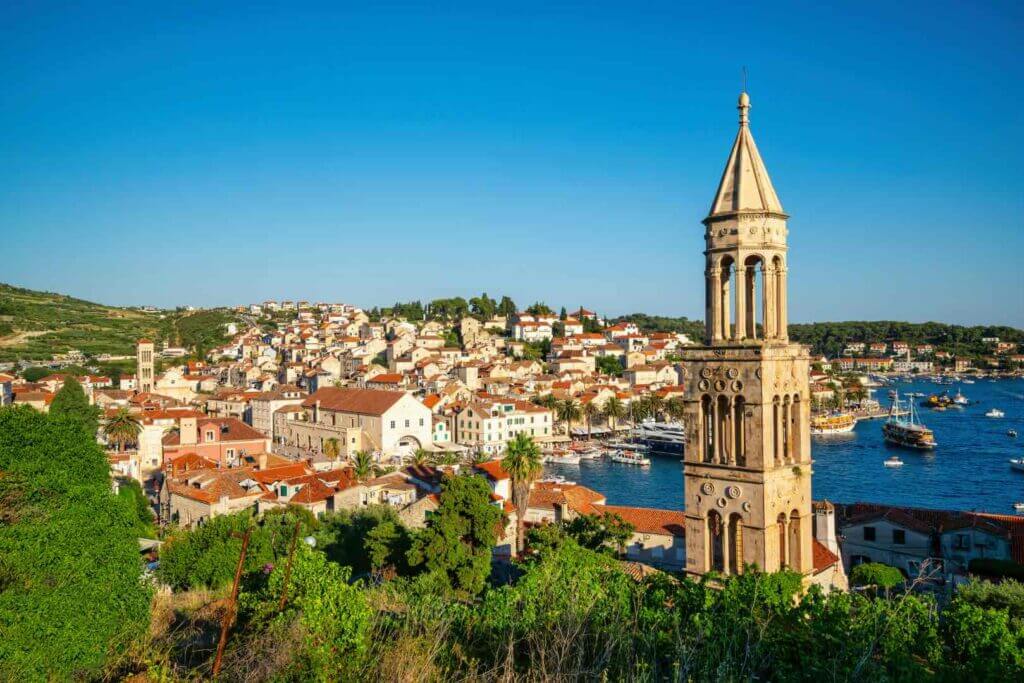
Hvar might be famous for its glitz, but its quieter side holds a UNESCO gem, the Stari Grad Plain. It’s a landscape sculpted by ancient Greeks, where neat rows of vineyards and olive groves tell a story of agricultural traditions stretching back centuries.
A Legacy of Ancient Greeks: Unveiling the History of the Stari Grad Plain
The Greeks colonised this part of Hvar in the 4th century BC, establishing a system of land division that is still visible today. You’ll see ancient stone walls, known as “chora”, dividing the fields and the remnants of Greek shelters scattered throughout the plain.
A Harmony of Nature and Humanity: Exploring the Vineyards and Olive Groves
The best way to experience the Stari Grad Plain is to get out and walk or bike along its paths. Admire the geometric patterns of the fields, breathe in the scent of herbs, and perhaps visit a local winery or olive oil producer.
Island Paradise: Unveiling the Allure of Hvar
While experiencing the plain, don’t miss the chance to discover the rest of Hvar. It boasts charming towns like Stari Grad and Hvar Town, a vibrant nightlife scene, and gorgeous beaches like Dubovica.
Whispers of the Past: The Stećci Medieval Tombstones Graveyards
Croatia is home to unique open-air museums, two sites with collections of “Stećci”, intricately carved medieval tombstones that are a symbol of a rich cultural tradition.
A Unique Open-Air Museum: Exploring the Stećci Medieval Tombstones
These sites, found in Cista Velika and Dubravka (Konavle), offer a fascinating glimpse into medieval funerary art. The tombstones are adorned with symbolic carvings – spirals, animals, and even scenes of everyday life – offering clues about the people who created them.
Unveiling the Symbolism and Stories Etched in Stone
The carvings on Stećci hold an air of mystery, with scholars still deciphering their full meaning. As you wander among the tombstones, it’s easy to feel connected to a distant past, imagining the lives and beliefs of the people buried beneath.
A Journey Through Time: Exploring the Cultural Landscapes Around the Stećci
Stećci sites offer more than just the tombstones. The landscapes surrounding them add to the experience, rolling hills, forests, and a sense of timelessness perfect for contemplation and reflection.
Recommended Tours in Croatia
Final Thoughts
Croatia’s UNESCO Sites left me in absolute awe! From the grandeur of Dubrovnik’s walls and the splendour of the Euphrasian Basilica, to the cascading beauty of Plitvice, and the timeless charm of Stećci tombstones, each site tells a unique story. They showcase Croatia’s rich history, stunning landscapes, and the enduring spirit of its people.
If you’re seeking a destination that ignites your sense of wonder and leaves you with a profound appreciation for history and culture, Croatia and its UNESCO treasures are an absolute must-visit! What a place!
Have you visited any of Croatia’s UNESCO Sites? Share your experiences and favourite memories in the comments below!
Related articles: Croatia’s Top Historic Sites: A Journey Through Time
Recommended websites and sources:
Frequently Asked Questions (FAQs)
What is the best time of year to visit Croatia's UNESCO Sites?
The shoulder seasons (spring and autumn) offer pleasant weather and fewer crowds. Summer is peak season, so expect more crowds and higher prices.
Are Croatia's UNESCO Sites easily accessible?
Major sites like Dubrovnik, Split, and Plitvice are accessible by bus, train, and car. Some, like the Stari Grad Plain, are best explored by bike or car for flexibility.
Do I need to purchase tickets in advance for the UNESCO Sites?
It’s highly recommended, especially during peak season. You can book online on the official websites of many sites.
Are there any guided tours of the UNESCO Sites?
Yes! Numerous tour operators offer guided trips ranging from day tours of single sites to multi-day adventures covering several UNESCO gems.
Is it possible to see all of Croatia's UNESCO Sites in one trip?
While possible, it would be rushed. To fully appreciate them, focus on a region or specific sites, allowing time for exploration beyond the main attractions.
Croatia Travel Guides
Save this post (pin it)
Share this post
Related Articles
Note: This post contains affiliate links. When you make a purchase using one of these affiliate links, we get paid a small commission at no extra cost to you.

